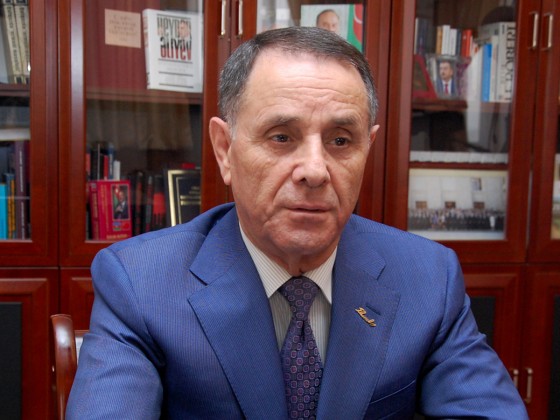
Baku, Azerbaijan, May 27
Trend:
Emergence of the Nagorno-Karabakh problem on the eve of gaining independence by Azerbaijan is not coincidence – it was created as a part of the cunning plan of certain world circles against the country, Novruz Mammadov, the deputy head of Azerbaijani Presidential Administration, chief of the administration’s foreign relations department said in an interview with Trend and AzerNews newspaper.
Some circles in Russia also supported this process, he said. “Currently, there is a deep crisis in the international relations and it is the crisis of justice.”
Mammadov said the crisis of justice means that the ongoing processes in the world are not viewed on basis of the norms and principles of the international law anymore.
“Although we live in the 21st century and compliance with these norms should be natural, no one does that,” said the top official.
“It may sound very harsh, but I’ll say that following the collapse of the USSR, processes on the international arena are accompanied by the attempts to regulate the international relations by strong states that have put their own political, economic and geopolitical interests above all,” said Mammadov, adding that it is often unsuccessful.
He said the foundation of the Nagorno-Karabakh conflict was laid even before Azerbaijan became independent.
“There are certain centers, circles, which are now engaged in these issues,” he said. “At the time of existence of the two poles – the USSR and the West – the tense situation was prevailing in about ten countries around the world.”
And today, Mammadov said, a similar situation is taking place in about 50 countries.
“These problems do not emerge by themselves,” he added. “We know very well how, where and why they have occurred.”
Mammadov also said that observing the media reports we see that those countries are being constantly mentioned.
He went on to say despite Azerbaijan has a very complex conflict and it is still in a state of war, the country has ensured its stability and security, has achieved very great success and continues to develop its statehood.
The conflict between the two South Caucasus countries began in 1988 when Armenia made territorial claims against Azerbaijan. As a result of the ensuing war, in 1992 Armenian armed forces occupied 20 percent of Azerbaijan, including the Nagorno-Karabakh region and seven surrounding districts.
The two countries signed a ceasefire agreement in 1994. The co-chairs of the OSCE Minsk Group, Russia, France and the US are currently holding peace negotiations. Armenia has not yet implemented the UN Security Council’s four resolutions on the liberation of the Nagorno-Karabakh and the surrounding regions.
Trend
